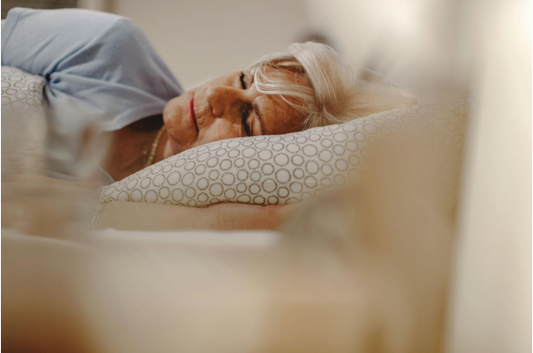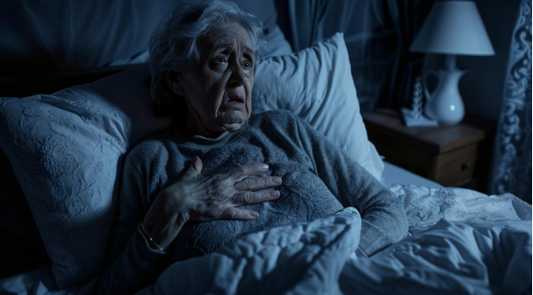Laughter might seem like an unconventional tip for better sleep. However, it is true that laughter can aid improved sleep and help people sleep better and for longer.
Here’s more on how laughing can make a huge difference to our sleep and why laughter therapy is important for those with sleep disorders (and anyone else who struggles to sleep from time to time).
Why is Laughter Important?
Laughter is important for an improved mood, pain relief, a stronger immune system. Of course, laughing can help us feel happier. It is a chemical reaction that releases endorphins, which can help to alleviate a low mood and make us feel satisfied.
If you weren’t aware, laughter is important for our overall health. Many might not be aware that it can help to relieve pain. Not only is laughter a distraction from pain, but it can also help by encouraging the body to produce its own painkillers.
Moreover, laughter can help strengthen the immune system as positive thoughts can lead to positive chemical reactions in the body. This helps to reduce stress and therefore, helps to reduce the stress within your immune system, which can cause it to weaken.
What’s most important here, is that laughter is important for sleep too. Read on to find out more.
What is Laughter Therapy?
Laughter is therapy. It works to lift our moods, alleviate bouts of depression, and also strengthen our immune system. Being in a happier mood can often contribute to better sleep. How?
If you are someone that lacks laughter throughout the day, then you might want to consider finding ways to laugh more after discovering its benefits for sleep. Laughter contributes to an improved mood and higher melatonin levels, which aids in better sleep.
Should you lack laughter and want to attain the benefits of sleep (as well as an improved quality of life) then you can use laughter therapy.
Laughter therapy is a non-pharmacologic practice that can aid in reducing anxiety and stress. During a laughter therapy session, there will be clinical humor used to reduce stress and anxiety and in turn, promote happiness. The stress-relief trigger can have a positive impact on sleep as laughter helps our bodies produce more melatonin.
More on how melatonin contribute to better sleep to follow.
How can laughter help you sleep better?
Laugher can improve sleep quality as it is an internal workout. It involves lots of muscle work inside and out to laugh. Hence, it can tire your body and help you feel more relaxed and in need of sleep at the end of the day.
Furthermore, laughter is a great way to relieve stress. It is common for stress to hinder our ability to sleep, get to sleep, or feel recharged after sleep. Therefore, reducing our stress levels can help us to fight the issues that we deal with when trying to sleep when feeling stressed. Our minds and bodies will find it easier to relax and switch off, which will help with getting to sleep as well as staying asleep.
The most important aspect of laughing to help improve sleep is the increase of melatonin that our bodies produce. The more we laugh, the more melatonin we produce, which contributes to better sleep.
The importance of melatonin for sleep
Laughter expands the alveoli (air space) in your lungs, which increases the production of melatonin. Melatonin is a hormone in the body that is extremely beneficial for sleep. Therefore, laughter can lead to improved sleep.
Laughing throughout the day will further enhance the amount of melatonin your body will produce, which will contribute to continuously improved sleep.
Melatonin helps with our sleep-wake cycle. It is often offered as a medication to help those with insomnia, or other sleep issues, to aid with improved sleep. Hence, naturally producing melatonin will likely result in better sleep.
Throughout the day, our melatonin levels will change depending on the time. At night, our melatonin levels increase. An increase in melatonin helps us to sleep as it facilities our transition to sleep. Therefore, if you increase your melatonin throughout the day through laughter, your higher levels of melatonin will further enhance how easily you can get to sleep.
Moreover, our melatonin levels decrease when we wake. This encourages us to wake up once our minds and bodies have had enough sleep.
Although you can attain melatonin medication to help with sleep, it is great to be able to produce it naturally. Laughing more every day will guarantee to increase melatonin levels, which can help you sleep naturally and not rely on medication.
Should you want to find reasons to laugh every day in order to improve your happiness and ability to sleep, here are some tips:
- Set the intention. Setting an intention to laugh more will encourage you to find a reason to laugh. You might laugh at small things, which you otherwise wouldn’t.
- Laugh first thing in the morning. Laughing first thing in the morning can help set a good tone for the day. Whether this means to watch something funny, laugh in the mirror, or read some jokes, find a way to laugh first thing in the morning.
- Smile more. The more we smile, the more likely we are to laugh. Find a reason to smile and leave it on your face all day to feel happier, more encouraged to laugh, and aid better sleep.
To Wrap It All Up
In conclusion, laughing can offer a multitude of benefits from improved mood to better sleep. Laughing is a natural therapy that can help improve our overall quality of life. If you lack the ability to laugh every day, then there is the option to try laughter therapy.
Finding reasons to laugh throughout the day will increase melatonin levels and reduce cortisol, which will contribute to greater happiness, less stress, and better sleep.






